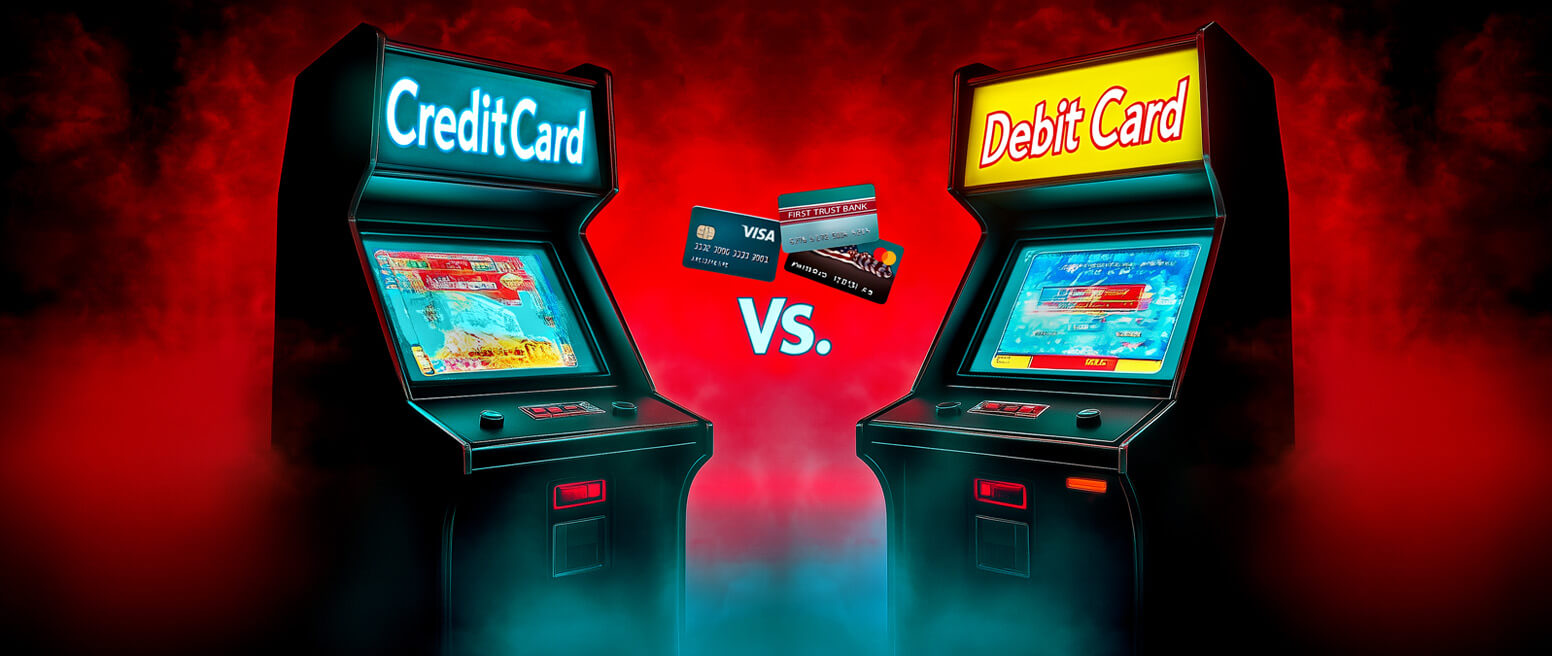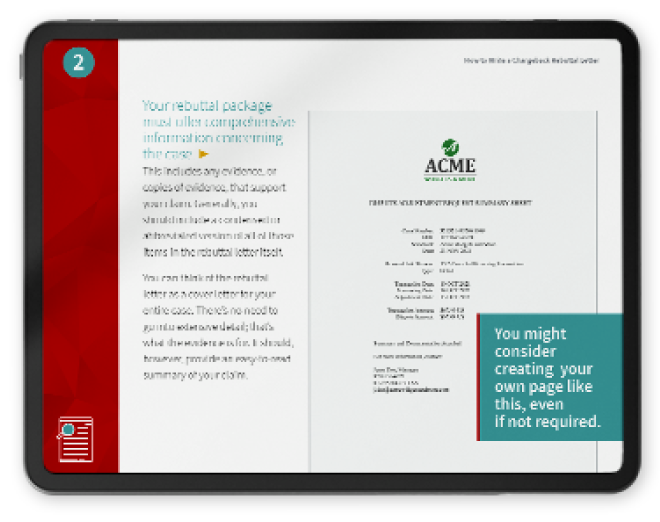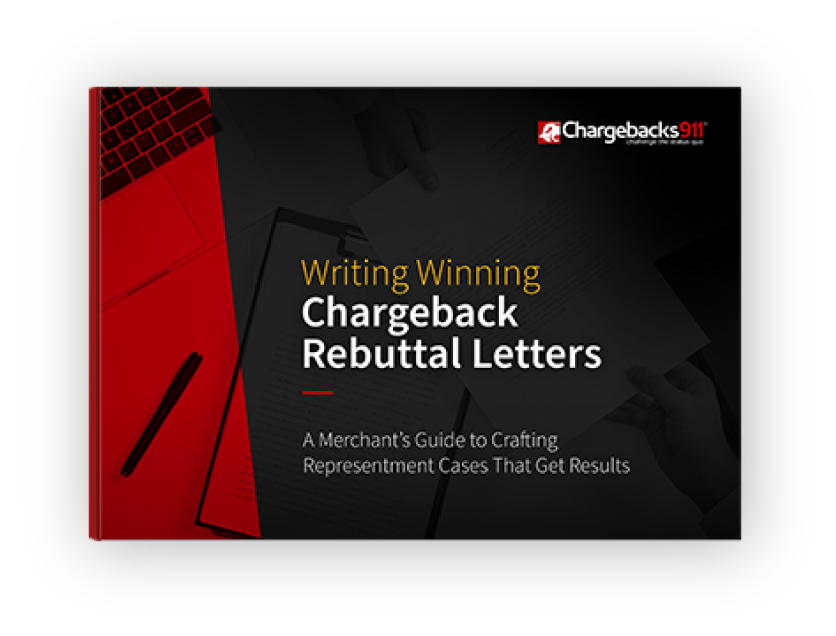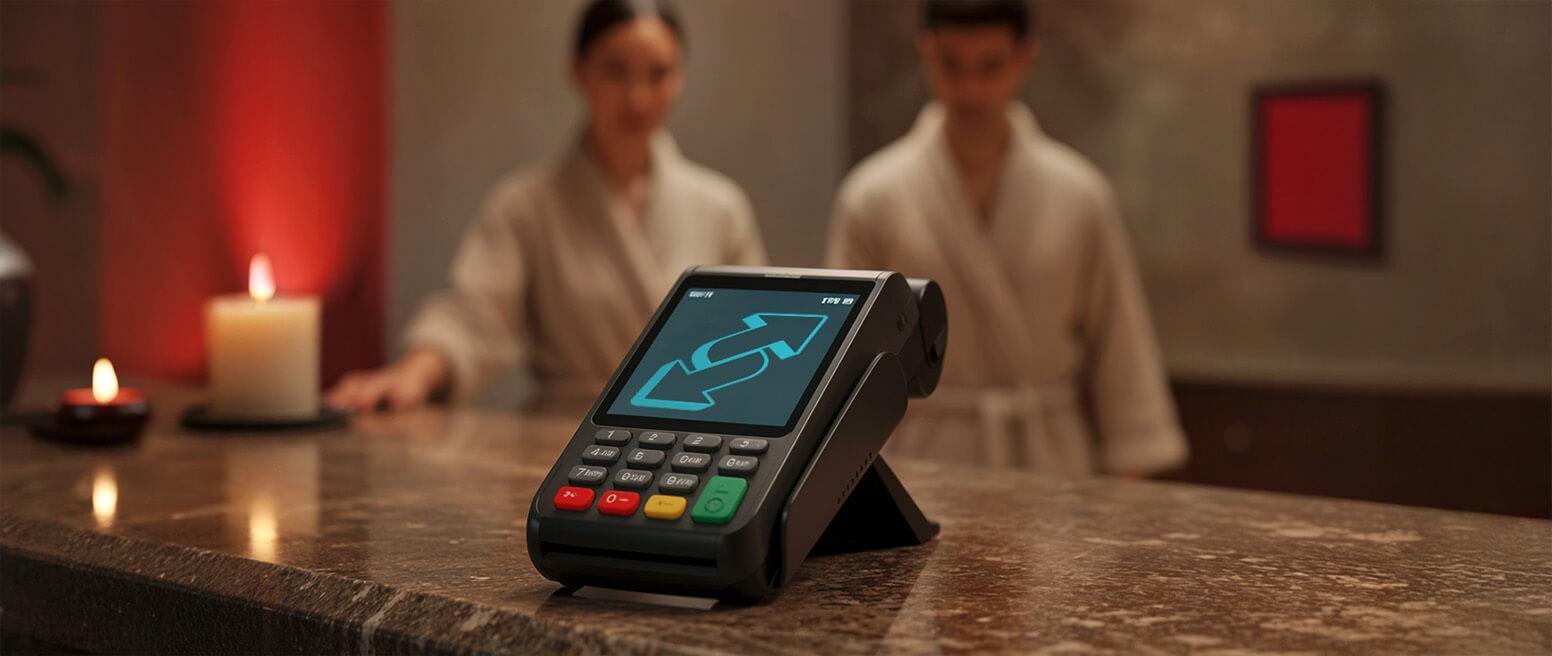How Cardholders Can Dispute Debit Card Charges & How Merchants Can Respond
The Federal Reserve Payments Study, most recently conducted in 2022, revealed a couple of interesting statistics about debit cards.
First, debit card transaction volume increased at a faster annual rate (13.7%) than credit card transaction volume (7.0%) did between 2018 and 2022. And, when we look at raw transaction numbers, we see that 51.8% of all non-cash transactions — 106 billion in total — processed in 2021 were initiated using debit cards.
These figures suggest that debit card transactions are becoming more popular among Americans. But, as the frequency and volume of debit card transactions rise, so will the rate of debit card disputes.
What do cardholders need to know about filing debit card disputes? And, how can merchants mitigate these escalating chargeback risks?
Recommended reading
- How Do Banks Investigate Disputes on Credit Cards?
- What Happens When You Dispute a Transaction?
- The Bank Dispute Process: A Step-by-Step Guide
- What is a Transaction Dispute? Why Do Customers File Them?
- Authorization Reversals: Lost Sales are NOT Always Bad?
- Dispute Management System: How to Pick the Best Provider
What is a Debit Card Dispute?
- Debit Card Dispute
A debit card dispute occurs when a cardholder challenges one or more transactions on their debit card statement. The cardholder does this, in theory, because there is some problem with the transaction which they are unable to resolve by working with the merchant directly.
[noun]/de • bit • kärd • di • spyōōt/
Cardholders typically file debit card disputes because of unauthorized activity, merchant billing errors, or unsatisfactory purchases. To file a debit card dispute, the cardholder contacts the bank that issued their debit card. The bank initiates a chargeback on the cardholder’s behalf.
Once the chargeback or dispute process is initiated, the issuing bank investigates the validity of the transaction by considering evidence and counterevidence submitted by the cardholder and the merchant, respectively. The issuer may also examine merchant information and transaction details, such as geolocation and timestamps.
The debit card dispute process concludes when the dispute is resolved in either the cardholder’s or merchant’s favor. If the cardholder wins the debit card dispute, they receive a credit against the transactions disputed. Meanwhile, the merchant loses out on revenue and merchandise, and is assessed a chargeback fee. If the merchant wins the dispute, the cardholder becomes fully liable for the charge (or charges) disputed.
Is There A Difference Between Credit & Debit Disputes?
There are key differences between debit and credit disputes. They’re governed by different laws, and there are different consumer protections in place depending on whether a buyer uses a credit or debit card to make a purchase. Credit cards generally offer more consumer protections.
Yes. Cardholders spend their own money when using a debit card. But, when transacting with a credit card, they’re spending the bank’s money.
This distinction means that issuing banks may not be as motivated to back cardholders in debit card disputes. After all, it’s not the bank’s money that’s on the line. That’s just one distinction, though; we’ve outlined some additional differences between debit and credit card disputes in the table below:
| Dispute Characteristic | Debit Cards | Credit Cards |
| Legally Governed By | Electronic Funds Transfer Act (EFTA) of 1978 | Fair Credit Billing Act (FCBA) of 1974 |
| Transactions Eligible for Dispute | Unauthorized transactions are almost always eligible. Charges that involve merchant errors or defective goods are sometimes eligible. | Unauthorized transactions, plus merchant billing errors or purchases that involve delayed, defective, or missing goods are almost always eligible |
| Provisional Credit Issued? | Sometimes | Almost always yes |
| Cardholder liability limited to | - no more than $50 if dispute filed within 2 days of transaction - no more than $500 if dispute filed after 2 days but within 60 days of transaction - no protections legally required after 60 days | - no more than $50 if dispute filed within 60 days of transaction - no protections legally required after 60 days |
When Should Cardholders File Debit Card Disputes?
In general, there are five situations in which a cardholder should dispute a debit card transaction:
- Criminal Fraud: The card was used by an unauthorized third party.
- Authorization Error: The merchant didn’t get the bank’s “ok” for the purchase.
- Processing Error: The merchant made a mistake in submitting the transaction.
- Fulfillment Error: The goods that arrived didn’t match what was described.
- Merchant Abuse: A criminal posed as a legitimate seller to scam victims.
Cardholders are within their rights to dispute any charge that falls into one of these categories. Move quickly, though; time is of the essence.
Learn more about reasons to dispute chargesHow to Dispute a Debit Card Charge (Step by Step)
Here are the steps cardholders should follow to try and resolve an issue through the dispute process:
How Do Debit Card Disputes Affect Merchants?
Now that we’ve got a good idea of how the dispute process works for cardholders, let’s discuss how it affects merchants.
From the seller’s perspective, there isn’t much functional difference between a debit or credit card dispute. Until the claim reaches the chargeback stage, the process to dispute debit card chargebacks is much the same, regardless of what type of card was used. And, the financial and operations impacts are basically the same, too:
How Can Merchants Fight Debit Card Disputes That Morph Into Chargebacks?
If a cardholder cannot, or does not, request a refund from the merchant, they will file a dispute with their issuing bank. Once this happens, the issuing bank will initiate the chargeback process.
A merchant who receives a chargeback can fight the dispute through a process called representment. This is how it works.
Best Practices for Cardholders
Debit card disputes are unpleasant and time-consuming, even from the cardholder’s perspective. Buyers need to collect evidence, contact merchants and banks, and respond to follow-up inquiries. Even then, there’s no guarantee that a cardholder will win their debit card dispute.
So, it follows that the best course of action is to try and avoid having to initiate debit card disputes in the first place.
Cardholders can minimize fraud risks by taking steps to secure their financial information from scammers. For example, cardholders should implement two-factor authentication (2FA) across all of their bank and debit card accounts. Ideally, customers should use an authenticator app as their second authentication factor, rather than SMS; the latter is less secure because it is prone to SIM swapping attacks.
Other best practices include changing passwords frequently, keeping debit card PINs private and confidential, and using virtual cards to make purchases.
It’s common for family members to share payment details with each other. But this is not always a good practice. Inevitably, card details that are passed among multiple people will be misused by someone with access. This is a practice known as family fraud.
Cardholders should avoid sharing debit card information with close relatives. If cardholders wish to establish allowances, they can do so by opening joint or custodial checking accounts. This segments the other family members’ purchasing activity from the primary cardholder’s, and lets the primary cardholder keep a close eye on their dependents’ transaction history.
Cardholders may be able to avoid a lot of headaches and phone calls with their bank by being a responsible shopper.
Before buying an item, read unbiased reviews from multiple sources.They should ask existing customers about their experiences with the product, and compare multiple merchants to ensure that they’re getting their money’s worth.
If a cardholder experiences unauthorized activity on their debit card, or engages in a transaction gone wrong, they have a strong case for a legitimate dispute. Cardholders should still reach out to the merchant first before contacting their bank, though.
There are two reasons for this. First, banks often require cardholders to attempt contact with the merchant for a reason before the cardholder is allowed to file a chargeback case with the bank. Following these rules closely can strengthen a cardholder’s dispute claim with their bank, provided the need arises.
Plus, merchant refunds are faster and more straightforward than disputes that involve banks. Cardholders can receive near-instant refunds from cooperative merchants; by contrast, a debit card dispute with an issuing bank, even if successful, may take between 60 and 90 days to fully resolve.
Tips & Best Practices for Merchants
238 million chargebacks were filed in 2023. And, the report predicts that as many as 337 million chargebacks will be filed by 2026; a 42% increase in just three years. In the face of these unfavorable statistics, merchants need to take proactive steps to mitigate debit card chargeback risks.
Merchants can use a variety of sophisticated tools to prevent debit card chargebacks. For example, chargeback alert services like Verifi CDRN or Ethoca Alerts can track pending chargebacks and alert merchants 24 to 72 hours before they are actually filed. This gives merchants a window of time to preemptively issue a refund and stop the incoming chargeback.
Other services can help merchants prevent chargebacks without issuing refunds at all. Network inquiry systems like Customer Clarity and Order Insight provide issuing banks and cardholders with information about transactions. These “nudges” can remind cardholders of legitimate purchases they made in the past and prevent accidental chargebacks arising from (wrongly) suspected fraud.
Some people’s money just isn’t worth taking. That’s the idea behind fraud detection tools; they block suspicious transactions from occurring so that they never have the chance to morph into refunds, disputes, or chargebacks. Some fraud detection providers even offer anti-chargeback guarantees, which reimburse merchants for chargebacks that arise from transactions approved by the fraud detection system.
These tools need to be deployed in a strategic manner, though. You want to adopt tools that can complement one another and offer redundancies to detect and block as many suspicious transactions as possible.
Customers who trust the merchants they do business with are more likely to work with them when things go wrong. And, the fastest way to build trust is to deliver excellent customer service.
This means responding quickly to customer phone calls and emails, being proactive about rectifying billing and merchandise errors, and adding complimentary services like tracked shipping for peace of mind.
Customer service also extends to refunds and cancellations as well. Merchants who err on the side of issuing generous refunds, for instance, can prevent disgruntled customers from filing chargebacks. In a similar vein, a simple and streamlined cancellation process can incentivize customers to cancel through official channels and prevent “force quit” chargebacks from occurring.
Merchants Need a Complete Solution
Cardholders who make purchases with debit cards are more likely to request refunds from merchants before filing a chargeback with their issuing bank. But “likely to” doesn’t mean “will.”
As banks and payment networks make their zero fraud liability guarantees more generous, debit card transactions may soon universally enjoy the same protections as credit card charges. For merchants, this means that debit card chargeback risks should be taken just as seriously as those presented by credit cards.
Given the patchwork of risk mitigation services on the market, how can merchants ensure that they’re adequately protected? Using a complete, fully-outsourced solution — like Chargebacks911®’s end-to-end chargeback management solution — is one option. Contact us today for a no-obligation ROI analysis to see how much you can save by preventing debit card chargebacks.
FAQs
How do debit card disputes work?
Debit card disputes work like any other payment card dispute. Cardholders first file a chargeback with their issuing bank. Then, the bank investigates the transaction under dispute to determine whether the cardholder or the merchant was at fault. If the cardholder wins the dispute, the transaction is reversed. If the merchant wins the dispute, the transaction remains on the cardholder’s debit card statement.
Can I dispute a debit card charge that I willingly paid for?
Yes, provided that you received damaged, missing, or delayed goods. However, if you dispute a purchase that you willingly paid for, but there was no obvious merchant error, you may be committing friendly fraud.
What are the odds of winning a debit card dispute?
On average, cardholders have between a 60% and 75% chance of winning a debit card dispute. You are more likely to win a debit card dispute if you challenge an unauthorized charge, or have compelling evidence that a purchase resulted in damaged, delayed, or missing goods. Your odds of winning a debit card dispute may not be as strong if you do not have documentation to substantiate your claims.
How do banks investigate disputes on debit cards?
Banks investigate debit card disputes by examining transaction records and evidence submitted by the cardholder. Banks will also review merchant information, consider rebuttals or counterevidence from merchants, and take into account prior attempts at communication between the cardholder and the merchant. When investigating a debit card dispute, banks will also be on the lookout for fraud indicators, such as geolocation, timestamps, or IP addresses used during the transaction.
How long does it take to get money back from a debit card dispute?
Generally, it can take between 60 and 90 days to resolve a debit card dispute. However, banks often issue a provisional credit against the transaction under dispute before the dispute is fully resolved.
What happens if a debit card dispute is denied?
If a debit card dispute is denied, the provisional credit that was previously issued to you will be reversed, and you will be fully responsible for the transaction you attempted to dispute.
















